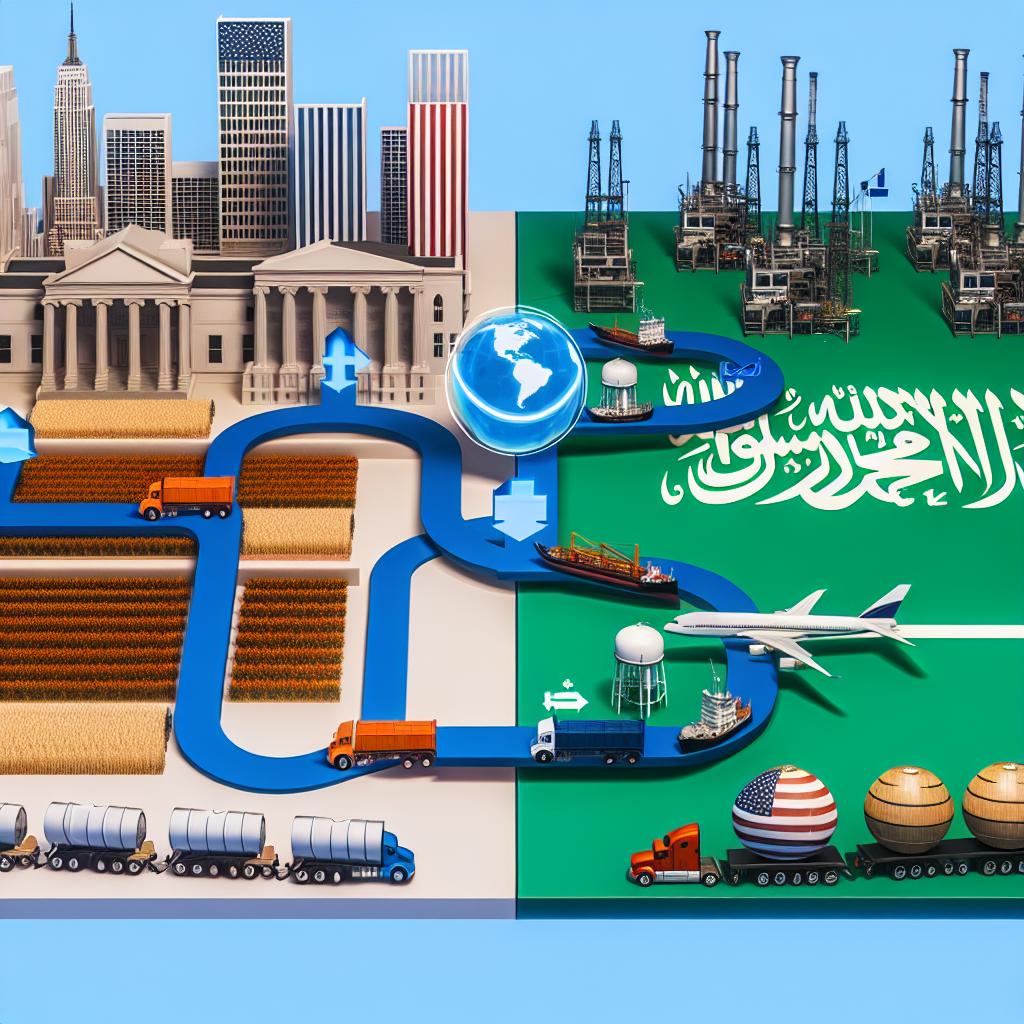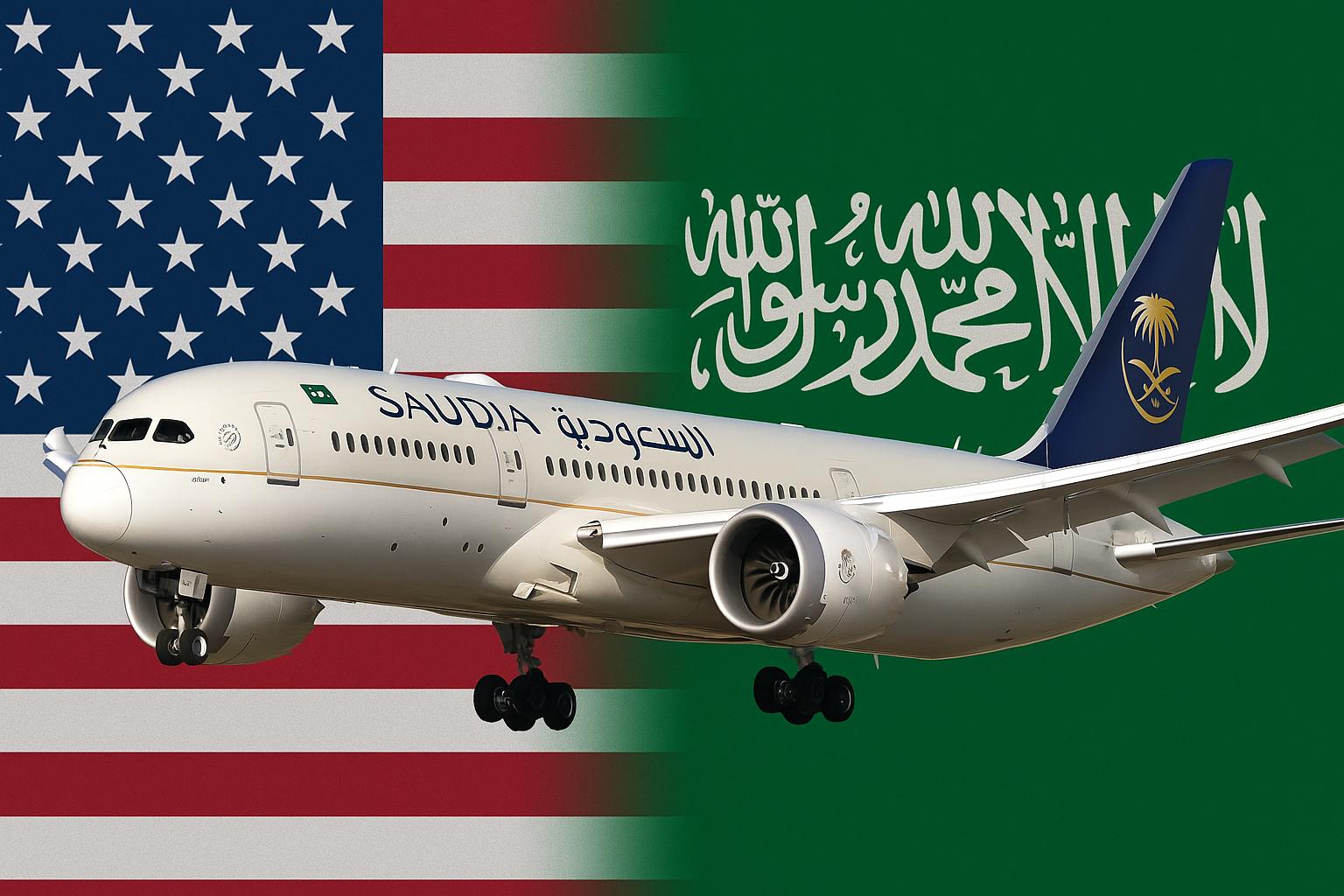Overview of US-Saudi Trade Relations
The trade relationship between the United States and Saudi Arabia has been both longstanding and mutually beneficial, driven by key industries and strategic interests. This economic partnership has evolved over the years, bolstered by various geopolitical and market factors. Understanding the industries at the heart of this trade provides insights into the economic dynamics between these two nations.
Oil and Energy
The backbone of US-Saudi trade is undeniably the energy sector. Saudi Arabia, holding one of the largest oil reserves in the world, has been a critical supplier of crude oil to the United States. This relationship is crucial for the stability of global oil markets, ensuring energy security and price management. The collaboration extends beyond trade, with both nations investing in joint energy projects and exploring renewable energy sources as part of a broader strategic vision.
These collaborative efforts have resulted in numerous projects aimed at enhancing energy efficiency and sustainability. For example, American companies have been involved in Saudi Arabia’s initiatives to harness solar and wind energy, reflecting a mutual interest in reducing reliance on fossil fuels. Additionally, the economic cooperation in energy often involves significant technology transfer, increasing Saudi Arabia’s capacity to manage its own resources more effectively. The sustained partnership in the oil and energy sector not only strengthens economic ties but also facilitates political relationships that have broader implications on international diplomacy.
Defense and Aerospace
Another key industry driving trade between the US and Saudi Arabia is defense and aerospace. The United States has been a significant supplier of military equipment and technology to Saudi Arabia, which is one of the largest importers of arms globally. This trade encompasses a wide range of products, including aircraft, missiles, and defense systems, supporting the modernization of Saudi military capabilities. These dealings often involve comprehensive agreements and long-term commitments that bolster bilateral relations.
Joint military exercises and training programs further enhance this partnership, ensuring that Saudi military forces are equipped with the necessary skills to operate advanced equipment. The defense trade also opens avenues for dialogue on regional security issues, with both nations working closely to address common threats. This exchange of technology and expertise not only impacts the Saudi military landscape but also contributes significantly to the United States’ economy through defense contracts and employment opportunities within the defense manufacturing sector.
Technology and Telecommunications
In recent years, technology and telecommunications have emerged as pivotal sectors in US-Saudi trade. The Kingdom’s Vision 2030 plan aims to diversify its economy and reduce dependency on oil, with technology being a cornerstone of this initiative. American tech companies are involved in building digital infrastructure and providing expertise in cybersecurity, software development, and telecommunications. These collaborations not only drive trade but also facilitate knowledge transfer and innovation.
American firms are playing a crucial role in Saudi Arabia’s digital transformation, providing critical technologies and services needed for the development of smart cities and infrastructure. As part of this cooperation, there is a focus on enhancing cybersecurity measures to protect sensitive data and infrastructure from potential threats. The significant involvement of US tech entities underscores the importance of this sector in reinforcing bilateral ties, promoting economic diversification, and fostering a culture of innovation within the Kingdom.
Infrastructure and Construction
The infrastructure and construction industry is another critical area where US and Saudi interests align. Saudi Arabia’s ambitious development projects, such as the NEOM city and various infrastructure upgrades, require expertise and resources that American companies can provide. The trade in this sector includes architectural design, engineering services, construction equipment, and project management.
As Saudi Arabia embarks on these mega projects, the input from American engineers and architects ensures the integration of modern construction techniques and sustainable practices. These collaborative projects are pivotal for the Kingdom’s future economic landscape, offering opportunities for US companies to showcase their expertise in large-scale construction and urban development. The trade dynamic in this sector represents a strong alliance that paves the way for continued partnerships in future regional developments and enhances Saudi Arabia’s infrastructure portfolio.
Financial Services
Financial services also play a significant role in the trade relationship between the US and Saudi Arabia. The Kingdom has been reforming its financial sector to attract foreign investment, and US financial institutions have been actively participating. This involves investments, banking services, insurance, and advisory roles in key economic projects within Saudi Arabia.
Due to these reforms, various opportunities have opened for American financial entities to contribute to the development of a more robust and diversified Saudi economy. By participating in these reforms, the US helps to strengthen Saudi Arabia’s financial infrastructure, facilitating smoother capital flows and a more investment-friendly environment. These advancements are vital for achieving Saudi Arabia’s Vision 2030 goals, while also expanding the market reach for US financial firms, thus benefiting both economies.
Conclusion
The trade relationship between the United States and Saudi Arabia is multifaceted, involving a diverse range of industries that contribute to both nations’ economic prosperity. From energy and defense to technology and infrastructure, these sectors underpin a robust bilateral partnership. This dynamic relationship not only influences the economic landscape but also enhances political and cultural ties between the two nations. For more information on US-Saudi trade relations, you can explore resources provided by the Office of the United States Trade Representative or visit the International Trade Administration.
This article was last updated on: February 15, 2025




